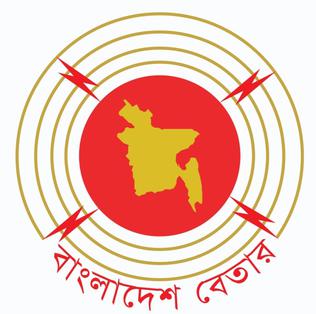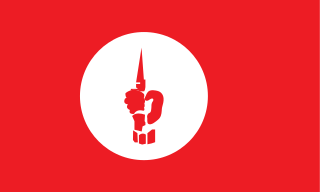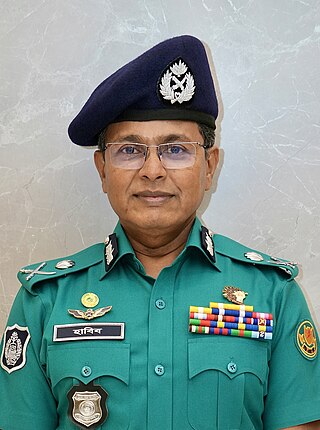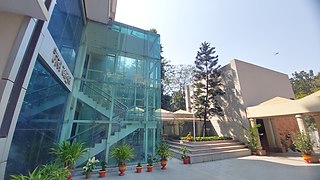
The Bangladesh Liberation War, also known as the Bangladesh War of Independence and known as the Liberation War in Bangladesh, was an armed conflict sparked by the rise of the Bengali nationalist and self-determination movement in East Pakistan, which resulted in the independence of Bangladesh. The war began when the Pakistani military junta based in West Pakistan—under the orders of Yahya Khan—launched Operation Searchlight against East Pakistanis on the night of 25 March 1971, initiating the Bangladesh genocide.

Victory Day is a national holiday in Bangladesh celebrated on 16 December to commemorate the defeat of the Pakistan Armed Forces in the Bangladesh Liberation War in 1971 and the Independence of Bangladesh. It commemorates the Pakistani Instrument of Surrender, wherein the commander of the Pakistani Forces, General A. A. K. Niazi, surrendered to the Mukti Bahini and their Indian allies, ending the nine-month Bangladesh Liberation War and 1971 Bangladesh genocide and marking the official secession of East Pakistan to become the new state of Bangladesh.

The Liberation War Museum is a museum at Agargaon in Dhaka, the capital of Bangladesh, which commemorates the Bangladesh Liberation War that led to the independence of Bangladesh from Pakistan.

Bangladesh Betar, or BB is the state-owned radio broadcaster of Bangladesh, initially established as the Dhaka station of All India Radio in 1939. It was later made part of Radio Pakistan. After the independence of the country in 1971, Radio Pakistan ceased transmissions there and the Swadhin Bangla Betar Kendra was renamed to Bangladesh Betar, which took full control of all radio stations in the country at the time.
Awards and decorations of the Bangladesh Liberation War were decorations bestowed by the major warring parties for actions during the Bangladesh Liberation War. Bangladesh, India and Pakistan all issued awards and decorations related to the conflict.
The Bangladesh Liberation War started on 26 March 1971 and ended on 16 December 1971. Some of the major events of the war are listed in the timeline below.

The Bangladesh Police is the national law enforcement agency of Bangladesh, operating under the Ministry of Home Affairs. It plays a crucial role in maintaining peace, and enforcement of law and order within Bangladesh. Though the police are primarily concerned with the maintenance of law and order and security of persons and property of individuals, they also play a big role in the criminal justice system. Bangladesh Police played an important role during the Bangladesh Liberation War.

The Proclamation of Bangladeshi Independence, refers to the declaration of independence of Bangladesh on 26 March 1971, at the onset of the Bangladesh Liberation War by Bangabandhu Sheikh Mujibur Rahman; the following day Major Ziaur Rahman declared independence on behalf of Sheikh Mujibur Rahman from Swadhin Bangla Betar Kendra radio station in Kalurghat, Chattogram. On 10 April, the Provisional Government of Bangladesh issued a proclamation on the basis of the previous declaration and established an interim constitution for the independence movement.

The Mukti Bahini, also known as the Bangladesh Forces, was the guerrilla resistance movement consisting of the Bangladeshi military, paramilitary and civilians during the Bangladesh Liberation War that transformed East Pakistan into Bangladesh in 1971. They were initially called the Mukti Fauj.
The existing Bangladeshi honours system was created after Independence of Bangladesh. The highest civilian honours are the Independence Award and Ekushey Padak. They are awarded every year. The awards are civilian awards for a broad set of achievements in fields such as Education, Arts, Civil Service, or Social Service and Liberation War. Awards were also bestowed posthumously and they are not given for foreign citizens.

The movement demanding trial of war criminals is a protest movement in Bangladesh, from 1972 to present demanding trial of the perpetrators of 1971 Bangladesh genocide during the Bangladesh Liberation War from Pakistan.
The Shadhin Bangla football team was formed by Bangladesh Krira Samity of the Bangladeshi government in exile shortly after the start of liberation war in 1971. This is the first instance of a Bangladesh national football team in any form. The team toured throughout India playing a total of 16 friendly matches to raise international awareness and economic support for the liberation war.

Muktijuddho e-Archive, also known as Bangladesh Liberation War e-Archive, is a 'Library, Archive & Research' organization, founded in 2007, working with collection, preservation & distribution of historical documents & research on the Liberation War of Bangladesh and Genocide of Innocent Bengali People in 1971. It was previously known as 'Bangladesh Liberation War Library & Research Centre', later in March 2016, it was registered under existing Trust Law of Bangladesh as 'Muktijuddho e-Archive Trust'. On 14 November 2016, it was officially inaugurated.

Bangladesh Students' Union, is a leading left-wing student organization in Bangladesh. The organization was established on 26 April 1952. It is an organization of students that provides protection for student interests and ensures the enforcement of student rights. During the Liberation War of Bangladesh, the organization had its guerrilla force.

The Ministry of Liberation War Affairs is the ministry responsible for the preservation of war memorials and the welfare of Freedom Fighters.

Bangladesh Police Football Club is an association football team based in Dhaka, Bangladesh. The club was founded by Bangladesh Police and formerly East Pakistan Police. The services team had previously played in the First Division Football League in 1998 – then the second tier of football. In recent times, Police FC became champions of the Second Division Football League in 2014 and were directly promoted to the Bangladesh Championship League in 2015. The club gained promotion to Bangladesh Premier League for the first time in the club's history by becoming champions of the 2018-19 Bangladesh Championship League.

Habibur Rahman is a former Bangladeshi police officer. He served as 35th commissioner of DMP. Prior to join here he was head of the Tourist Police. From 2019 to 2022, he was deputy inspector general (DIG) of Dhaka Range, and DIG of administration and discipline at the police headquarters in Dhaka. He was sent into retirement from government service in public interest according to the provisions of section no. 45 of the Public Service Act, 2018.

Bangladesh Bank Taka Museum is a numismatic museum in Dhaka, Bangladesh run by Bangladesh Bank. The museum displays the history of currency in Bangladesh from the ancient times to the present. It also displays the currencies of different countries of the world.

Zia Memorial Museum, also known as Old Circuit House was a circuit house building. Ziaur Rahman, the seventh president of Bangladesh, was assassinated in the building in 1981. Today it is a museum. It is located in Chittagong, Bangladesh.
Shah Abdul Mazid was the superintendent of Pakistan Police in Rajshahi District who was killed in an attack on the Rajshahi police line by the Pakistan Army in 1971. In 2016, he was posthumously awarded the Independence Day Award, the highest civilian award in Bangladesh.
















